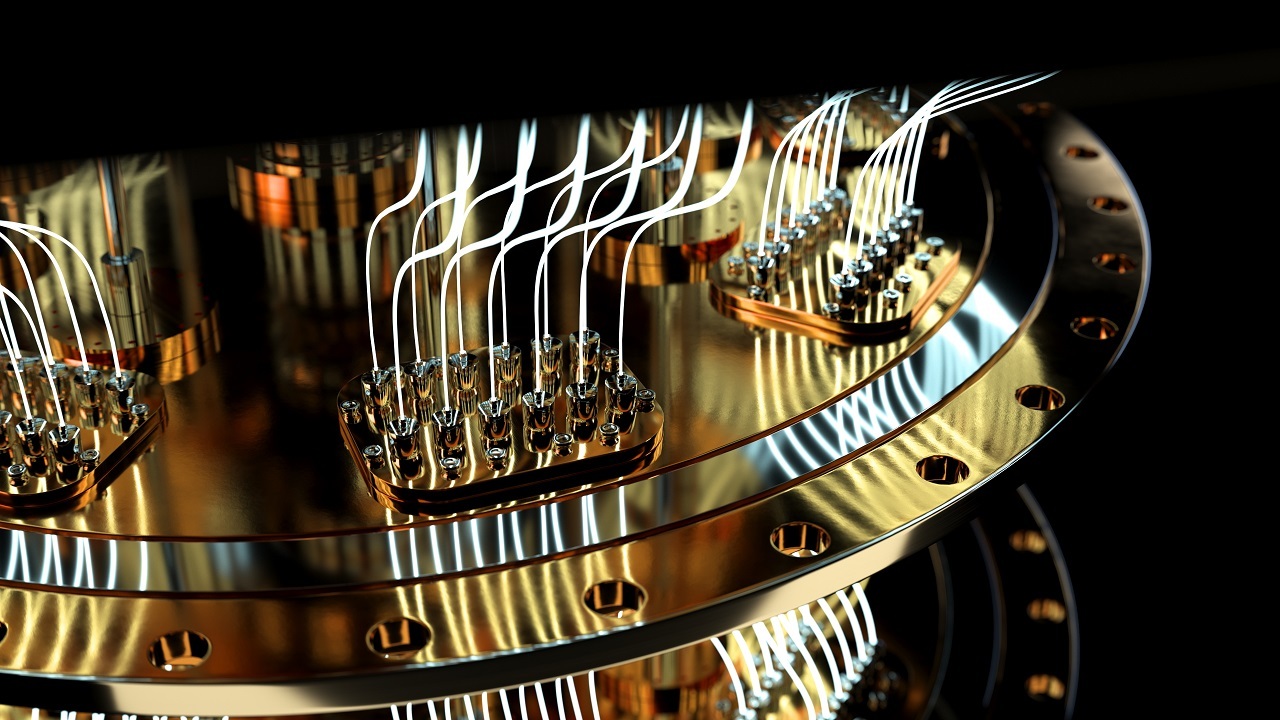Quantum Computing Qubit Entanglement Record Broken at 51
Another step on the road to quantum scaling.

New research on quantum computing has delivered a quantum entanglement record that proves we're well on our way toward post-NISQ (Noisy-Intermediate Scale Quantum) computing. The new research, led by Xiao-bo Zhu at the University of Science and Technology of China, resulted in a record 51 qubits (the quantum computing equivalent to transistors) being entangled, a necessary ability to unlock the probabilistic quantum computing that promises to provide a quantitative jump in humanity's processing capabilities.
Zuchongzhi, the quantum computer used to achieve the experiments' results, packs in 66 superconducting qubits - the same qubit technology backed by IBM and a number of other premier companies in the quantum computing space. This is the same technology on which IBM recently achieved quantum utility through its 127-qubit Eagle QPU (Quantum Processing Unit), showcasing from varied players that there's particular life happening in the superconducting qubit space.
After cooling the superconducting qubits to the required absolute zero of outer space ( −273.15 degrees Celsius, −459.67 degrees Fahrenheit), the researchers then controlled and fine-tuned the qubits' states by using microwaves, which interacted with the qubits' magnetic fields to manipulate them into the entanglement state. This was required so that the qubits were organized in particular sequences (or logic gates), the quantum-equivalent structures built out of transistors to form a CPU core in standard computing, for instance. This allowed the scientists to run operations that changed the states of the qubits many pairs at a time, instead of a mere one-to-one connection field. These techniques enabled the scientists to successfully entangle 51 qubits (arranged in a line) and a lower-but-still-a-record 30 qubits arranged in a two-dimensional plane.
Charles Hill, a researcher at the University of New South Wales in Australia, is perhaps one of the better-qualified scientists to comment on the results. Hill has been involved with similar research, and aimed to prove a similar "networked" entanglement between as many as 65 qubits.
Entanglement is perhaps best understood as meaning that the qubits become enmeshed in such a way that it's impossible to describe a single qubit without being able to describe all others and how they relate to each other: it's essentially a unique system, a knot without any hanging threads.
In remarks provided to New Scientist, Hill described entanglement as “... one of the key differences between conventional computers and quantum computers, and it’s a key ingredient in quantum algorithms. Demonstrating large numbers of entangled qubits is then an important benchmark for a quantum computer.”
At the time of his research, Hill's team didn't succeed in proving the entanglement extended between the qubits as a group and not just between linked pairs, the same verification difficulty that Zhu encountered (and surpassed) with the Zuchongzhi QPU.
Get Tom's Hardware's best news and in-depth reviews, straight to your inbox.
It's relatively frequent that we develop new tools or new ways to look at objects - or interactions between objects. In this case, it might be that the issue Hill ran into with his 65-qubit entanglement experiment had nothing to do with the entanglement itself; only that perhaps available techniques to verify his results weren't able to provide a convincing response. Zhu's team had to develop a new detection protocol in order to verify the group entanglement, something that's sure to be scrutinized in full by the quantum computing community. It's not every day that the promise of entangling hundreds of qubits surfaces, after all.
Entangling groups of qubits is one of many mid-step research opportunities that quantum scientists are pursuing, from attempting to increase computational fidelity through error mitigation and, perhaps, quantum error correction, through finding clever ways to predict how noise will destroy your qubits, and essentially nullifying it effects.
It's expected that 51 entangled qubits won't allow us to break through the quantum advantage barrier - at least not until scaling has a bit more time to do its thing. But with IBM having recently shown us that utility can already be extracted from our current-era quantum computers, it's not out of the realm of probability that 51 entangled qubits unlocks a given answer we might not even know the question to yet.

Francisco Pires is a freelance news writer for Tom's Hardware with a soft side for quantum computing.
-
The Historical Fidelity I’ll wait for a thorough peer-review and 3rd party confirmatory experiments before believing another “Chinese researchers quantum breakthrough” story. The last article really showed a lack of scientific credibility by the researchers.Reply -
bit_user Reply
The news I can find just says they built the computer. Did they demonstrate 70-qubit group-entanglement, on it?thunderrr675 said:so we just gonna ignore google’s 70 qubit quantum computer entirely orrrrr 💀 -
mcdonnell155 Reply
Didn't know blizzard is joining the 11ax should have been released in 2008 protest. Time to invest in unconventional ai. peethunderrr675 said:so we just gonna ignore google’s 70 qubit quantum computer entirely orrrrr 💀 -
tennis2 Don't understand quantum computing, I just think Quantum computers look soooo (steam punk) cool.Reply -
bit_user Reply
We only see the guts. When in operation, I think they just look like big stainless steel cylinders with some cables and liquid helium hoses attached.tennis2 said:Don't understand quantum computing, I just think Quantum computers look soooo (steam punk) cool.
For instance: